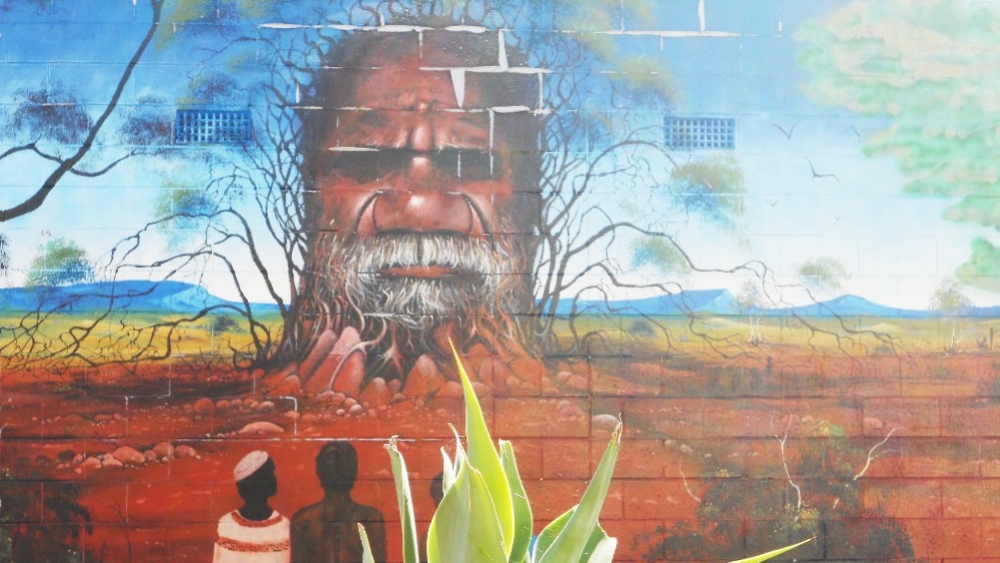Reconciliation: it’s all talk and no action
Report on church Indigenous Relations paints a bleak picture
NCLS Research exposed a significant “gap” between Christians’ “aspiration and action” on the issue of Aboriginal and Torres Strait Islander reconciliation in a bleak report on Indigenous and Non-Indigenous Relations in Churches this week.
Yet before campaigners reach for their whiteboards and schedule strategy sessions, they should take note of indicators suggesting attitudes might be shifting already.
59 per cent of survey respondents admitted they’d done nothing to encourage Indigenous reconciliation, awareness or relationship building in previous 12 months.
The bad news
First, the bad news.
While 62 per cent of church attenders agreed that “churches should more actively promote reconciliation,” 59 per cent of survey respondents admitted they had done nothing to encourage Indigenous reconciliation, awareness or relationship building in the previous 12 months.
Of those who had done something, the two most popular actions were “made an active effort to stay informed on Indigenous issues and policies in Australia” (16 per cent) and “developed friendships with Indigenous Australians” (13 per cent).
Just 8 per cent of responders said they had prayed about Indigenous issues at a public gathering; 7 per cent had attended a Reconciliation Week or NAIDOC week event; 6 per cent had shared an article on Indigenous issues online; and 4 per cent said they had advocated on behalf of Indigenous issues (for example, signing a petition, writing to a parliamentarian, or attending a protest). Only 4 per cent said they had financially contributed to an organisation with a strong focus on Indigenous reconciliation or related issues.
The good news (and a bit more bad news)
That’s not to say the majority of Australian Christians don’t believe relationships with Aboriginal and Torres Strait Islander peoples are important – they do!
More than three-quarters – 78 per cent – of survey respondents said they believe the government should do more to improve Aboriginal health; 75 per cent stated that racism towards Aboriginal people was a concern for them; and 66 per cent agreed or strongly agreed that the government should provide Aboriginal people with extra employment help.
Even on an issue that might be expected to be more divisive, Australian Christians indicated some level of support for Aboriginal and Torres Strait Islander sovereignty, with 73 per cent affirming constitutional change in order to recognise Aboriginal people as our first inhabitants and 79 per cent backing constitutional change that disallowed discrimination on the basis of race.
Even the biggest issue – a treaty – received support from 37.3 per cent of responders. Just over a quarter – 26.4 per cent – said it “would be good in theory but would not lead to significant changes for Aboriginal people,” while 27.7 per cent said they were “unsure” of what to think.
It is when looking at the results for individual – and church – level action that the story loses its shine – NCLSR report
In fact, a lack of certainty about Aboriginal and Torres Strait Islander issues is a key theme in the report. Asked whether their denomination had apologised for past injustices, 74 per cent of those surveyed were unsure. Asked whether their denomination should apologise, 46 per cent didn’t know. And despite the “broad level of support for increasing local church-based involvement in the task of reconciliation and for government-based policy initiatives to close the gap in health and employment,” the NCLSR said story “loses its shine” when looking at individual and church-level action.
But why?
But why? What’s in the ‘gap’ between the aspirations Australian Christians profess and taking action towards reconciliation with Aboriginal and Torres Strait Islander peoples? And what will it take to bridge it?
One possible answer might be a lack of relationship between the two groups. Of the 1295 church attenders surveyed about their social contact with Aboriginal people, 50.5 per cent said that they didn’t know any Aboriginal people personally and 34.5 per cent said they “know Aboriginal people but do not mix regularly with them.”
And while 70 per cent of senior local church leaders believed “one of the most important ways for churches to contribute to reconciliation efforts with Aboriginal people” was to “build intentional relationships with local Indigenous Australians,” 69 per cent of them selected “never” when asked how often they had done so in the previous 12 months.
30 per cent of attenders reported an awareness of personal change in their own attitudes to the concept of reconciliation over the preceding 12 months.
Hope on the horizon
The report also provided some reasons to take heart for Christians longing to see the church lead by example in a country desperately in need of reconciliation.
First, the report shows that some Australian Christians are at the beginning of a journey of understanding Aboriginal and Torres Strait Islander injustice at the time they were surveyed. For example, 30 per cent of attenders reported an awareness of personal change in their own attitudes to the concept of reconciliation over the preceding 12 months and 55 per cent said they had been impacted by reconciliation talks.
In addition, 22 per cent of churches reported they had current involvement or were taking “first steps” in “ministry with Aboriginal or Torres Strait Islander people.” Another 14 per cent said they were “open” to such ministry in the next two years. (Also, 39.8 per cent were under the impression there was “limited or no opportunity in our area for this type of ministry” – a stance they may well revise after a small amount of investigation.)
“Are Australian churches simply going with the flow of broader social and political currents on this issue?” – NCLSR report
More importantly, since Christians were surveyed in 2016, there have been plenty of words spoken in our national conversation about Aboriginal and Torres Strait Islander reconciliation, both in the Christian and secular spaces.
For example, on January 26, 2017, when social justice movement Common Grace launched an initiative that invited Christians to post an Acknowledgment of Country on their Facebook page, 8388 people took part.
On May 26, 2017, after years of conversation in the Aboriginal and Torres Strait Islander community debating constitutional recognition and a treaty, representatives from various Indigenous nations met for the First Nations Constitutional Convention at Uluru, producing the historic document of consensus entitled ‘Statement from the Heart.”
Changing the date of Australia Day became the subject of national media articles in 2017 and was front-page news in 2018 when local Melbourne councils made the decision to change the date of their Australia Day celebrations. Triple J radio moved their Hottest 100 countdown from January 26 to January 27.
And in local churches and Bible colleges, changing attitudes were reflected in equally significant ways. For example, someone questioned whether enough money was being allocated to Aboriginal and Torres Strait Islander ministry at the Sydney Anglican’s annual Synod. Aunty Jean Phillips was the speaker in a session at a Baptist Morling Bible College seminar in August 2017, and Brooke Prentis delivered the college’s annual Tinsley Lecture in March 2018. Common Grace organised 16 “Acknowledgment Services” in the lead-up to January 26, 2018, holding at least one in every capital city. Hillsong Church opened both its annual Hillsong Conference and Colour Women’s Conference with an Acknowledgment of Country.
For those who long to see the church take action on reconciliation, these early steps should provide reason to hope the next NCLSR report on reconciliation might be more positive. Whether Australian Christians will lead by their own example of reconciliation, or will merely “go with the flow” of the country’s social and political currents remains to be seen.
Email This Story
Why not send this to a friend?


